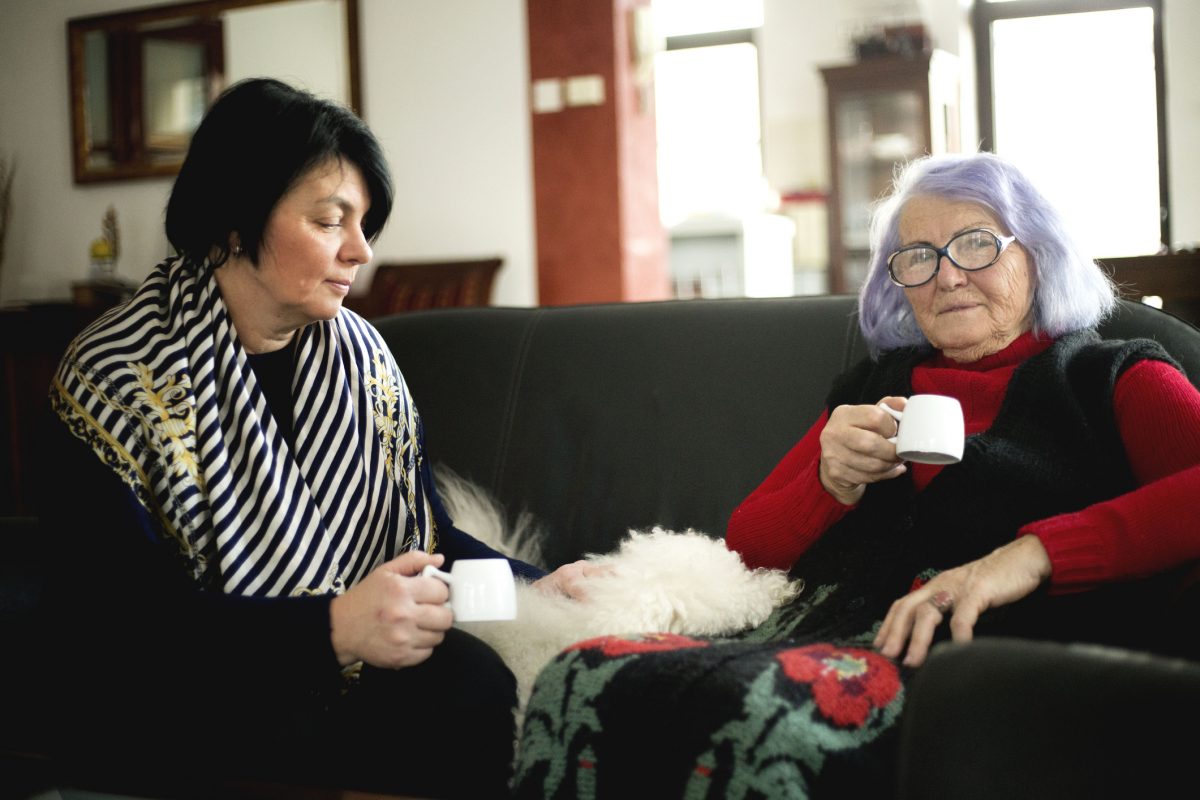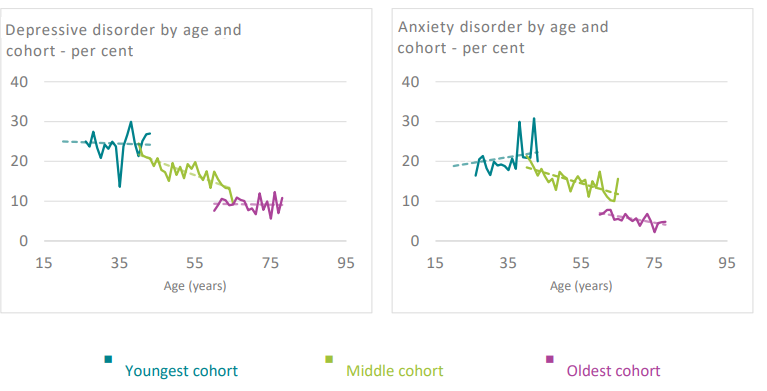
The study found that depressive symptoms were lowest among older Canberrans. Photo: File.
Canberrans have better mental health outcomes as they get older, a new study commissioned by the ACT Government has found.
The PATH Through Life Project report examined the physical and mental health of nearly 7500 people from Canberra and Queanbeyan.
The study, conducted by ACT Health and the University of New South Wales, has followed the same individuals for more than 20 years, tracking a number of different aspects of health and wellbeing.
The study found that the younger respondent group was less healthy, both physically and mentally, at similar ages to the oldest respondent group.
If the current trajectories continue, this cohort may experience poorer health outcomes than their older counterparts as they age.
Minister for Mental Health Emma Davidson said the results paint a mixed picture of ageing across the region.
“Physical and mental health, wellbeing and functional independence are all related to healthy ageing and living well,” Ms Davidson said.
“We know older Canberrans may experience poor mental health due to changes in lifestyle following retirement, the greater chance of chronic conditions, and the social and emotional challenges sometimes associated with age, so it is encouraging to see older members of our community reporting positive mental health.
“However, it is concerning younger Canberrans are reporting significantly higher rates of anxiety and depression than other cohorts.”
The study commenced in 1999-2000 when the youngest cohort was aged 20-24 years, the middle cohort was aged 40-44 years, and the oldest cohort was aged 60-64 years. The participants were selected randomly from the electoral roll and followed up approximately every four years.
“Younger cohorts were less healthy, both physically and mentally, at the same age, compared to older cohorts. Younger cohorts tended to have higher levels of obesity, arthritis and thyroid disease than older cohorts at the same age, suggesting that younger cohorts are becoming unhealthy at an earlier age than their older counterparts,” the report said.
“Although mental health improves with age (reflecting an ageing effect), younger cohorts in general had poorer mental health than older cohorts at the same age.”

Anxiety and depressive symptoms were most commonly reported by the youngest cohort. Image: The PATH Through Life Project.
The study found probable anxiety disorders were the most prevalent among the younger cohort, and Canberrans aged 40-44 were most likely to experience anxiety symptoms.
“Anxiety appeared to be increasing among the youngest cohort and was higher compared to the middle cohort at the same age,” the report said.
“Despite seeing a decline in the proportion of those experiencing anxiety disorders, a higher proportion of the middle cohort had experienced anxiety symptoms than those from the oldest cohort at the same age.”
Depressive symptoms were also higher among the younger group, and a higher percentage of younger cohorts reported having a probable depressive disorder than older cohorts at the same age.
“It is vital we continue to monitor the mental health of young Canberrans to ensure they do not experience poorer outcomes as they age,” Ms Davidson said.
“Having an environment that allows people to live active, productive, and mentally healthy lives is critical to support healthy ageing. This means people are able to access mental health support when and where they need it.
“Ensuring equitable and quality access to strong mental health support for all ages means Canberrans can live healthier lives as active members of our community.”




















